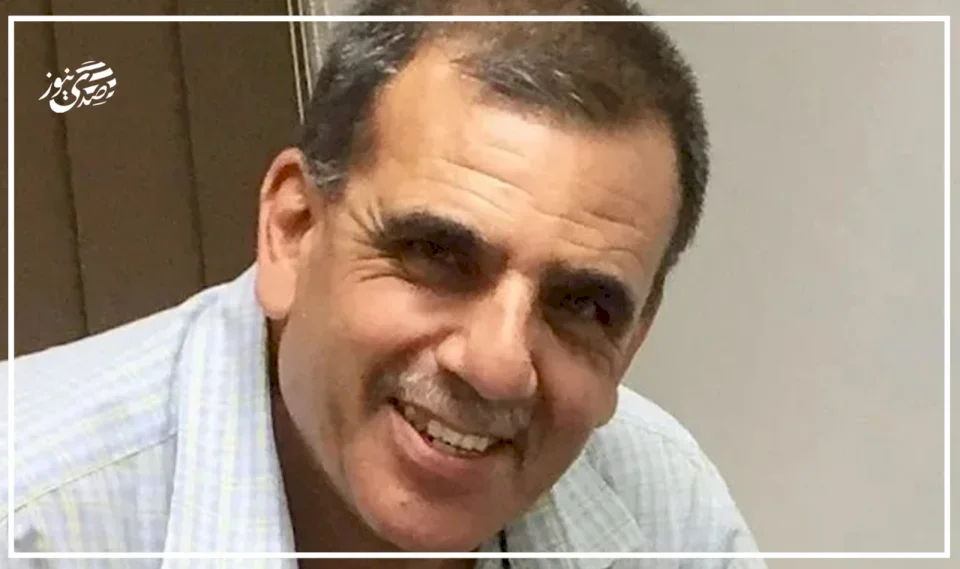
What Awaits Marwan Barghouthi?
The name of the captive leader Marwan Barghouthi has returned to the forefront once again, after he and other leaders of the prisoner movement were excluded from the exchange deal that was concluded between the Palestinian resistance, led by Hamas, and the Israeli occupation authorities. This deal was one of the results of the peace summit held in Sharm El-Sheikh on the 13th of the current month under the auspices of U.S. President Donald Trump, with the participation of Egypt, Turkey, Jordan, and Qatar.
Despite the ambiguity still surrounding the issue of Barghouthi's release, hopes have renewed after President Trump's statements regarding receiving a request for his release, and that he will announce his decision soon. This request may have come from an undisclosed party that has undoubtedly been following the Palestinian issue in all its details. Barghouthi, a 67-year-old, whom the occupation authorities insist on refusing to release, is seen as the most suitable figure to manage Palestinian affairs given the complex Palestinian situation, especially regarding the Fatah movement. Trump's statements coincided with other remarks about President Mahmoud Abbas, praising him but stating he does not see him as suitable to rule Gaza, adding that the Palestinian people are suffering from the absence of a clear leader!
Amidst the sensitivity of the Palestinian scene, which faces pressures from all sides, and the various statements regarding the Palestinian Authority and its needs for reform and combating corruption, as well as the internal, constitutional, legal, and political consensus that guarantees unity in decision-making and legitimacy within the Palestinian geography, and the ongoing debate about Gaza and its administration, Barghouthi's name returns to dominate the scene, enhancing his symbolical value among various factions of the Palestinian spectrum. This gives him an opportunity to unify the Palestinian voice. However, several questions have emerged: Why Marwan Barghouthi? Is there a connection between President Abu Mazen's recent decree appointing the Deputy Chairman of the Executive Committee of the PLO, a member of Fatah's Central Committee, to carry out duties on his behalf if he is unable to perform his tasks, and the renewed calls for Barghouthi's release? And finally, what awaits Marwan Barghouthi if the leaked news about his release is accurate?
Without a doubt, the Palestinian scene is in a state of extreme complexity. The Palestinian Liberation Organization, the legitimate and sole representative of the Palestinian Arab people, has lost its credibility and popularity among the Palestinians and has become a subject of mockery for many observers and analysts. The Palestinian Authority has been plagued by corruption from top to bottom, Fatah has reached its worst state, and the national movement, with its various directions, has suffered from lethargy and weakness. From this perspective, there is a view among Fatah members, factions, and the general public that Barghouthi is seen as the savior who can address all the manifestations of the current Palestinian situation.
Marwan Barghouthi, often referred to by some as the Mandela of Palestine, is regarded as the only viable option within the Fatah and broader Palestinian arena. He is associated with the Arafat era in all its aspects, where Yasser Arafat remains venerated by the Palestinians for his legacy. Barghouthi, especially among Fatah members, is considered a great hope for uniting their ranks and restoring their spirit of resistance, role, and standing nationally, Arabically, and internationally. He is capable of rebuilding a collective national identity and reestablishing a unified national entity based on national principles. His respect and popularity give him the potential, along with his peers from other factions who respect his historical and resistance legacy, to unify two parts of the homeland and ultimately end the destructive division, spark a moral, national, and political uprising within Palestinian society, and inaugurate a new phase in the Palestinian struggle—successfully combining peace and war to realize the dreams of the Palestinian people.
It is no secret that some current Palestinian leaders fear Barghouthi’s release, and perhaps this is what prompted President Mahmoud Abbas to issue his decree regarding Hussein Sheikh's appointment to take his place if he is unable to manage affairs. The president preempted what is happening in local, Arab, and international circles and defined the path of the upcoming phase with figures from the same stream that represents his ideas. There is a general fear among the Palestinian public that the aim of this decree is to prolong the current phase with all its characteristics, which means continuing to monopolize the Palestinian national decision in the hands of a select few who benefit from the current situation. This creates an obstacle that will await Marwan Barghouthi in his efforts, which will be fraught with thorns and mines. At best, it is possible that Barghouthi may face the risk of being marginalized, either morally, though this is somewhat unlikely due to the difficulty of damaging Abu al-Qassem's reputation, or physically, which is more likely if he begins to implement a reform plan and unite the Palestinian public, showcasing a united Palestinian image before the local, Arab, and international public. If he succeeds in rebuilding Fatah and reviving the PLO, it could aid in achieving national reconciliation and establishing a unified reference for the Palestinian people.

Between "Here is Jerusalem" and "Here is Gaza" ... The Voice of a Nation and the Steadfast...

While some count the boos, Palestinians count their martyrs.. Paradoxes of the internation...

When the Palestinian Issue is Reduced to Gaza Management

Legally Licensed Occupation

The Absence of the Palestinian Representation and the Bet on Time

Palestine: When the Criminal is Declared a 'Peace Maker'

Don't Blame the Palestinian People for the Failures of Your Regimes and Ideologies

